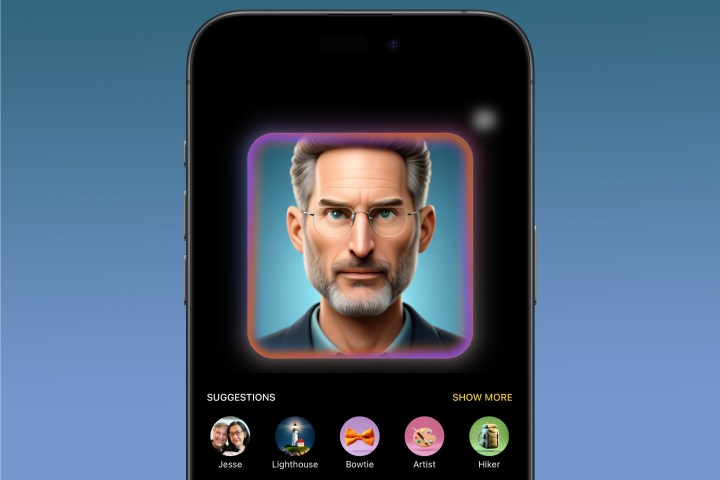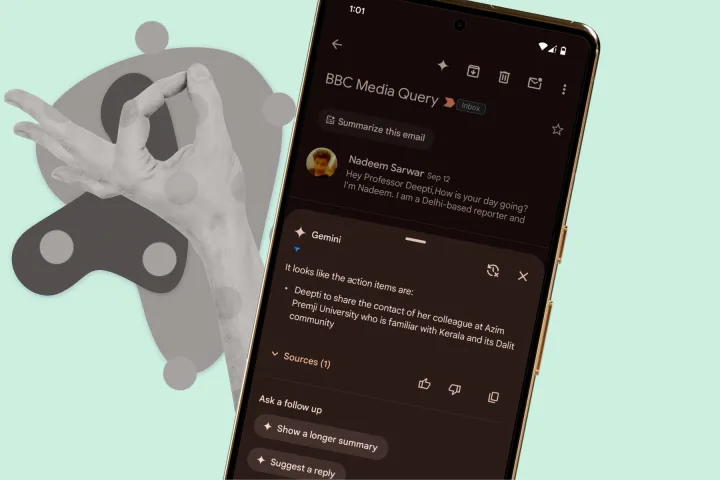This year feels like a turning point for smartphones with all the new AI features being rolled out by Apple, Google, and basically every other tech company. I’ve been particularly intrigued by Apple Intelligence, which has introduced some promising new AI capabilities that will be rolled out to select devices over the coming months.
Google’s Gemini AI system for the Pixel 9 Pro and other Android devices also shows promise and seems slightly further along than Apple’s product. Both tools claim to make our lives easier and enhance our interaction with our devices when fully implemented.
However, I have to admit that navigating through these features has often left me scratching my head. I often wonder how these complex AI functions translate into real-world benefits for the average user. It’s like a whole new world of technology is available, but figuring out how to use it effectively can feel overwhelming.
As I explore the potential of AI enhancements in my daily life, I’m curious about their long-term impact. What’s the real difference between the two approaches? Which will deliver the most value for smartphone users like me? This question lingers as I consider how these technologies might shape our routines and experiences.
Let’s dive into the details of Apple Intelligence versus Google Gemini and see what we can uncover.
An introduction to Apple Intelligence and Gemini
In recent months, I’ve spent a lot of time thinking about the differences between Apple Intelligence and Google’s Gemini, and I find it fascinating how each technology approaches its functionality. When fully implemented, Apple Intelligence will probably become a seamless extension connecting everything across my iPhone, iPad, and Mac. It’s like having an intelligent friend who understands my needs, regardless of which device I’m using.
In contrast, Google’s Gemini seems more focused on helping users tackle specific tasks, which makes sense when you consider it was initially designed to compete with ChatGPT as a chatbot but has since evolved into a broader platform. Depending on the Android device, it can sometimes feel a bit inconsistent.
When it comes to protecting your privacy, Apple takes its responsibilities seriously. The company ensures that any tasks done in its cloud services are kept safe on its own devices. This means that even Apple can’t access your private information, which is reassuring.
Google Gemini saves personal information in your Google account, meaning prompts, responses, and feedback from Gemini interactions are recorded and can be accessed through the My Activity settings on Google.
Feature face-off

There’s some overlap between Apple Intelligence and Google Gemini features, but each has its strengths. Let’s look at a few key areas:
Digital assistance and personalization
Apple Intelligence (with an upgraded Siri) and Gemini are already solid digital assistants. However, Siri shines when it comes to navigating and performing tasks across different apps without needing to open them manually. For instance, say, “Send the photos I took in Hawaii to Mom,” and Siri can do it in a flash. At least, it should be able to do so in 2025.
Through Siri, Apple Intelligence is deeply woven into the iOS fabric, creating a seamless user experience. The intuitive commands and localized processing significantly enhance convenience while securing our personal information. Recent updates have improved Siri’s natural language understanding, making conversations more human-like. Plus, Apple is committed to ongoing improvements, meaning Siri will likely get even smarter.

That said, Siri has limitations. Its integration with third-party apps isn’t as robust, and it often requires explicit commands, which can sometimes be frustrating.
Gemini’s biggest strength is how it incorporates real-time voice conversations. It feels like I’m chatting with a real person! Its natural language processing is so impressive — it can adapt to the flow of our conversation and understand context and nuances in speech. This makes it great for brainstorming sessions or casual chats. Google’s focus on conversational AI makes interactions feel authentic and adds a lot of value to my personal and professional conversations.
Gemini’s assistant best answers questions through the recently introduced Google Gemini app. My favorite feature here is Gemini Live, which aims to be your digital best friend. It can answer any question, assist you with your homework, plan a trip abroad, and much more.
This impressive tool is now available without a costly subscription. It allows you to converse with a voice assistant about any topic. Gemini Live is fantastic, and I’m eager to see how it develops.
Image creation and editing

Apple Intelligence and Google Gemini take different approaches to creating and editing images. Google leverages Imagen 3 for image editing and offers a subscription-based Gmail and Google Docs suite. Meanwhile, Apple has AI baked right into its Photos and Messages apps, processing data on your device to keep your information private — a massive plus for those of us who value our privacy.
Apple Intelligence offers a host of features to enhance your photo experience. Imagine being able to analyze your cherished photos and videos, effortlessly searching through them with natural language, like saying, “Show me my dog at the beach.” It’s like having a personal assistant who knows exactly what you’re looking for. Plus, a fun feature lets you “lift” subjects from the background of your images. This means you can create cool stickers or collages without the hassle of manual editing.
If you’re feeling creative, the Image Playground lets you turn your text descriptions into unique visuals. Although it’s still being refined, it opens doors for excellent creative expression and visual storytelling. And let’s not forget about the Memory Movies feature, which curates your favorite photos and videos into personalized videos, complete with music and special transitions tailored to themes or events that matter to you.

On the other hand, Google Gemini is equally captivating. It can analyze your images and provide insightful descriptions, making it feel like you have a knowledgeable friend who can answer all your questions about your scenes. Gemini can generate images from your text prompts if you have a specific vision, enabling you to craft visuals that reflect your imagination.
Additionally, if you want a bit of creative flair, Gemini can edit your existing images by adding or removing elements, giving you complete control over your visuals. This blend of image and text interaction opens up exciting avenues for creating marketing materials, brainstorming creative ideas, or even delving into complex topics through imagery. And for Pixel phones, specifically, there’s Google’s Pixel Studio app. It can similarly create images from a few lines of text, though its initial launch was … clunky, to say the least.
Email Productivity

Managing emails can often feel overwhelming, but Apple Intelligence and Google Gemini can help here, too.
With Apple Intelligence, you can breeze through your inbox. It summarizes long emails and threads so you can quickly catch up on the essential points instead of wading through endless messages. It’s beneficial after a busy day or when you have a lot going on. Plus, the Smart Reply suggestions make it easy to respond to messages quickly, whether you’re writing a quick thank you or a quick “I’ll get back to you soon.” And let’s not forget its ability to prioritize your emails. It flags urgent messages — like flight confirmations or meeting invites—so you won’t overlook anything important. It helps you stay organized and in control, all with less effort.

Google Gemini is an excellent companion for your Gmail experience. It assists you in composing emails and can generate drafts of your needs. Whether you’re crafting a birthday invitation or a professional introduction, Gemini helps get the ball rolling, making the process smoother. Additionally, it summarizes lengthy email threads, helping you quickly grasp critical points without feeling overwhelmed. Plus, Gemini can analyze your emails to suggest relevant files from your Google Drive, keeping everything you need at your fingertips. With these tools, you can feel a newfound sense of productivity and efficiency in managing your emails, giving you more time for what matters.
All about Google Search

Finally, it should be no surprise that one of Gemini’s biggest strengths is its integration with Google Search. This provides access to vast information perfect for answering burning questions. Its cross-platform compatibility — working smoothly across Android, iOS, and some smart home devices — gives it an edge in accessibility, especially for those who use multiple devices.
However, many people are understandably concerned about Google’s data collection practices, which can lead to privacy worries. The deep integration within Google’s ecosystem may be unsettling for users who are cautious about how their data is handled.
Which devices run these tools? It’s confusing

I’ve been exploring Google Gemini, and I like its versatility. It works across many different platforms and devices, which feels like a big win compared to Apple Intelligence, which is pretty restricted to just a handful of Apple products.
Apple Intelligence only works on the iPhone 15 Pro and the latest iPhone 16 series for mobile use. It also runs on tablets with the A17 Pro chip or later, such as the latest iPad mini and Pro models and the iPad Air (5th generation and later). This makes you think about which ecosystem best suits your needs.
Final thoughts

Navigating the AI-powered smartphone world can feel like exploring a new frontier. Both Apple Intelligence and Google Gemini are shaking things up, but they take different routes and cater to different preferences. Apple Intelligence focuses on privacy and works seamlessly with other Apple devices, making it a great choice for those already using the Apple ecosystem. On the flip side, Google Gemini offers cross-platform compatibility and taps into Google Search’s vast knowledge, which is perfect for users who want flexibility and easy access to information.
Choosing the “better” option really depends on what’s most important to you. If you value privacy and a smooth experience with your Apple gear, Siri and Apple Intelligence might be right up your alley. But if you want a wide range of accessibility and loads of info at your fingertips, Google Gemini could be the way to go.
As this tech keeps evolving at lightning speed, one thing’s clear: The future of smartphones is all about being smart, personalized, and deeply connected with AI. Whether you lean toward Apple’s integrated system or Google’s broader approach, there’s plenty of potential to make your digital life easier and more enjoyable.
Leave A Comment
You must be logged in to post a comment.